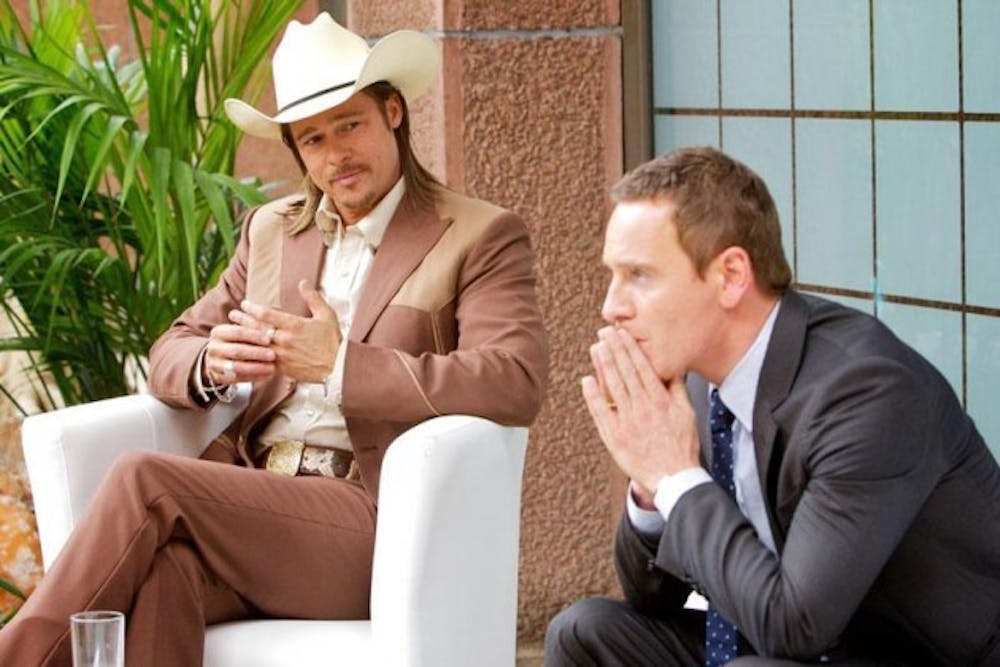Film: The Counselor
Studio: 20th Century Fox
Release Date: Oct. 25
Grade: F
It is hard to believe that Cormac McCarthy wrote this film - a sordid, rancid, monotonous piece of drivel. But he did. And it is leaving a lot of viewers wondering whether he just failed miserably at his first original screenplay or whether Ridley Scott (Prometheus) butchered it beyond comprehension.
It is probably a bit of both.
The Counselor may read better than it seems, but it is a dud - an incoherent, inane crime "thriller." The screenplay is clunky - full of stilted dialogue - and the acting is as awkward as it is overemphasized.
It is one of the most star-studded lineups of the year and not a single actor seems put to good usage, except for maybe Pen?(c)lope Cruz (I'm So Excited!) - and that may be because she is barely used; her presence alone provides a performance.
The opening scene between her character, Laura, and her soon-to-be-husband, the counselor (Michael Fassbender, Prometheus), is a teasingly graphic moment. Since Shame, Fassbender has been Hollywood's main guy for explicit escapades on the screen - he's willing to expose himself and really take risks. And Scott thinks he's being quite daring by beginning a movie with cunnilingus. When the director tries to make this film titillating, it is deadening; nothing is more unconvincing in The Counselor than its eroticism.
The film moves between a puerile (and inept) commentary - on the nature of intimacy and relationships and trust - and an illicit plotline that centers on a criminal enterprise that trades cocaine on the Texas-Mexico border. Physical desire is placed alongside a capitalist impulse; and McCarthy and Scott make a sense of yearning embedded in the larger American story.
This is a movie about chasing something. And in a weird way, its technical ineptitude matches its thematic undercurrent - both the filmmakers and the characters are misguided over what they are chasing.
Fassbender's title character is in the middle of a crooked deal between Renier (Javier Bardem, To the Wonder) and Westray (Brad Pitt, World War Z). Renier's girlfriend, Malkina (Cameron Diaz, Gambit), is the shadowy figure placed in between it. She has leopard-spotted tattoos on her neck and darkness all in her eyes. And Diaz brings perhaps the most outrageous sex scene of the year, involving a Ferrari windshield. She is one of the most egregious femme fetales to come out any recent movie.
The adolescent fixations that pervade this work, along with its overarching tone of existential dread, feels more like a McCarthy novel on acid. And Scott's color pallet seems to suggest that, too.
McCarthy, an inimitable prose master known for his spare stylistic control and sense of machismo, seems out of place in this decadent work of indulgence. The movie was conceived in the patterns of grandiosity - it is heavy and dull and full of ethical implications.
In The Counselor, the moral collapse of modern man is a soul sickness of sorts.
But the problem is that its moral framework doesn't come out of the raw material that makes such inquiries interesting - it is too rooted in hyperbole and comes more out of convention than it does an artist's obsession.
Even if McCarthy and Scott were not attached to this project, it would likely attract a talented array of actors - the script is full of disquisitions on longing and regret, morality and death. In a Shakespearean sense, this film aims at poeticism, but strains itself in how ridiculously it takes up its own undertaking.
The film becomes a series of incessant musings by characters who are not interesting - and these moments are wedged in between scenes of tawdry violence. The film thinks it is really saying something about the darker sides of human nature. But it is a debacle of style and method, a spectacle of gratuitous violence in a garish world.
It all takes place in an affluent segment of a widespread underbelly in an attempt to provide an examination on ambition and desire, love and loss. The only kind of loss you feel, however, is the amount of time you spent watching this movie.
The Coen brothers' adaptation of McCarthy is fitting - a merging of subtle depth and deadpan delivery. But Scott can't help but give in to his urge for making McCarthy's sensibility and his own a kind of shared hopelessness. And when you leave the theater, you just don't buy any of it.
email: arts@ubspectrum.com





